News
Fuel Crisis: Labour Demands Immediate Reversal Of New Pump Price
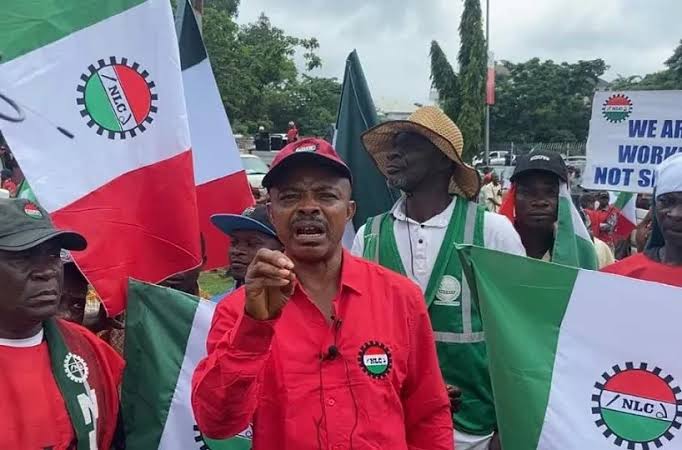
Expectedly, the Nigeria Labour Congress (NLC) has condemned the federal government’s increase in the pump price of Premium Motor Spirit (PMS), describing it as a betrayal of trust.
This development followed reports of fuel being sold above N1,000 at petrol stations across Nigeria from yesterday.
In a statement by NLC President Joe Ajaero, in Abuja, Labour expressed shock and disappointment at the government’s decision, which it claimed was made without prior consultation or notice.
It was gathered that during negotiations for the new national minimum wage, one condition for accepting the proposed N70,000 was the government’s commitment to maintain the existing fuel prices.
Labour lamented feeling a deep sense of betrayal as the federal government clandestinely increased the pump price of PMS.
Ajaero stated that one of the reasons for accepting N70,000 as the national minimum wage was the understanding that the pump price of PMS would not be increased, even though they knew that N70,000 was insufficient.
According to Labour, the federal government offered the option of a higher minimum wage of N250,000 with a pump price of PMS between N1,500 and N2,000 or a lower minimum wage of N70,000 with the old fuel rates, and that organised labour opted for the latter, unwilling to burden Nigerians with further economic strain.
Labour lamented that the government has violated this understanding, even when the reduced new minimum wage is yet to be implemented. Amid ongoing fuel scarcity, the increase in petrol prices by the Nigerian National Petroleum Company Limited (NNPC) from N617 to N897 per litre at its retail outlets in Abuja, N855 in Lagos, and over N1000 in other parts of the country had caused a lot of misgiving among Nigerians.
Nigerians woke up yesterday to these changes in petrol pump prices. A directive from the NNPC Retail management indicated approval for an upward review of PMS pump prices across the country.
“This is to inform you that NNPC Retail Management has approved an upward review of PMS pump price from N617/litre to N897/litre, effective today, September 3, 2024. Please ensure all your pumps and totems (price boards)/MIDs reflect the new PMS price of N897/litre,” the message read.
Checks reveal that many NNPC filling stations in Abuja had already implemented the new prices, with downstream facilities selling at N897. At an independent filling station along Jikwoyi Road in Abuja, the commodity was sold at N960 per litre. Our correspondents went round filling stations. In Ado Ekiti, NNPC Mega Station petrol was sold at N855, Rein Oil at N930, Matrix at N935, and Bovas at N935, while others sold between N1000 and N1200 per litre.
In Borno State capital.Maiduguri, petrol at Kime Petrol Limited was N1000, Ajus Oil Ltd.’s pump price was N970, Ngarzema Petrol Station’s was N975, and Bamus Investment’s was N950. Both A. A Rano at Club Road and Danmarna Filling Station at Gwagwarwa by Airport Road in Kano sold a litre of petrol for N950. It is sold at N980 at Rainoil Filling Station along Aba Road in Umuahia, the Abia State capital.
Petroleum was being dispensed at N950 at the Famab—Agoro Filling Station, Sobi Specialist Hospital Road, Alagbado, Ilorin, Kwara State.
In Delta State, specifically Asaba, Rain Oil Petrol Station sold fuel at N950 per litre. In Zamfara State, fuel was sold at different prices: Rikiji Filling Station at N950, Danmarna Filling Station at N890, and Danmaikyau Filling Station at N930. NNPCL in Ibadan sold at N865 per litre. Total was sold at N1000 per litre, Martum Filling Station Apete sold at N950 per litre, and Gmas Petrol Station Apete at N950 per litre.
In Enugu, MOOB Filling Station, opposite St. Patrick’s Cathedral Parish, Awka, along Zik’s Avenue, sold fuel at N950 per litre yesterday.
Abu Kure and Imani fuel stations on Gusau Road, Sokoto State, sold fuel at N1000 and N1200, respectively. Fuel is sold at N980 per litre at EMSA Filling Station, Aka Road, Uyo, Akwa Ibom State.
In Kaduna, AA Rano sold at N950 per litre, Sharon at N920 per litre, while black market sales reached N1500 per litre.
In Rivers, NNPCL sold at N884 per litre, Oando at N970 per litre, and the black market sold at N1000 per litre.
In Rivers, NNPCL sold at N884 per litre, Oando at N970 per litre, and the black market sold at N1000 per litre.
In Imo State, fuel stations such as BGR and Cocean on Orlu Road dispensed the product at N950 per litre.
The product sold for more or less the above prices in Kebbi, Plateau, Gombe, Niger, and Adamawa states.
However, the NNPC spokesperson, Olufemi Soneye, declined to comment when our correspondent contacted us.
The NNPC attributed the shortages and price increases to significant debts owed to suppliers and ongoing operational difficulties at the country’s four non-functional refineries.
As queues grow longer at filling stations, stakeholders warn that further price hikes could deepen the economic hardship faced by many Nigerians, pushing them closer to breaking point.
The price hike comes as Nigerians are already grappling with high inflation, currently at its highest level in 28 years, and a weakening economy. The increase in petrol prices is likely to lead to a sharp rise in the cost of basic food items and transportation, further straining household budgets.
Many Nigerians have expressed frustration with the current situation.
The NNPC, the sole importer of petrol into Nigeria, had attributed the price increase to financial strain caused by the high cost of importing the commodity. The company has acknowledged significant debts owed to petrol suppliers, which has placed considerable pressure on its operations.
Despite the government’s efforts to remove subsidy and allow private firms to import petrol, the NNPC remains the sole importer due to foreign currency shortages and a cap on the price of petrol. Some outlets have taken advantage of the situation to maximize profits, further exacerbating the crisis. As the cost of living continues to rise, many Nigerians are calling for urgent action from the government to address the ongoing petrol crisis and its impact on the economy.
Experts have called on the government to roll out incentives to alleviate the suffering caused by the fuel price hike. The experts, who spoke in various interviews with LEADERSHIP yesterday, also urged the government to increase its support for the adoption of renewable energy in the country.
An impeccable industry source told our correspondent that the NNPCL is about to raise the ex-depot price to N850 per litre, which will force independent retailers to sell at above N900 to N1,000 per litre, considering other costs. This adjustment is connected to the NNPC’s disclosure that petrol importation has caused financial strain and poses a threat to the sustainability of the fuel supply.
Dr. Muda Yusuf, director/CEO of the Centre for the Promotion of Private Enterprise (CPPE), said, “The reality is that this is a very difficult situation for the government and the NNPC. I hope that as citizens, we should show some understanding at this time. If the situation improves, the price may be further moderated.”
On his part, the group executive chairman of Lancelot Group, Mr. Adebayo Adeleke, noted that the fraud characterizing NNPC operations has fully matured. “Why were they fighting Dangote over the refinery? They know that one man’s success will demystify them. What do you do when you owe? You pay up. They should pay.”
Similarly, David Adonri, vice president of Highcap Securities Limited, expressed concern over whether the new PMS price is market-determined.
“NNPC has a monopoly over the supply of PMS. An abuse of monopoly power may be what we are currently witnessing,” he said.
“Several things have already gone wrong, which signals a rollback on market reforms. Whenever prices increase astronomically, it fuels galloping inflation. The drive by NNPC to hike fuel prices may be responsible for the current excruciating fuel scarcity. Some people also think that the measure is geared towards preparing the market for the entry of Dangote’s PMS at international prices.”
FG Denies Ordering NNPC To Increase Petrol Prices
Meanwhile, the federal government has addressed reports circulating on social media, claiming that the minister of state for petroleum resources, Heineken Lokpobiri, directed the Nigerian National Petroleum Company Limited (NNPC) to inflate petroleum prices to N1000 per litre above the approved pump price.
The federal government, in a statement signed by the special adviser to the minister, Nneamaka Okafor, said the report was concocted and ill-conceived to sow discord and confusion in the oil industry.
“There was never a time the federal government interfered with petroleum pricing at NNPC, let alone give directives for price increment. The federal government is compelled to address the outright falsehoods currently being circulated on social media, which claim that the minister of petroleum resources, Senator Heineken Lokpobiri, directed the Nigerian National Petroleum Company Limited (NNPCL) to inflate petroleum prices above the approved pump price.”
“We categorically condemn these claims as baseless, malicious, and a deliberate attempt to incite public discontent.”
“We challenge anyone in possession of any evidence—be it written documents, audio, or video recordings—that supports these fabrications to make it public. Such a claim is entirely untrue and should be recognised as an intentional effort to mislead the public.”
News
FG announces April deadline for completion of East-West Road
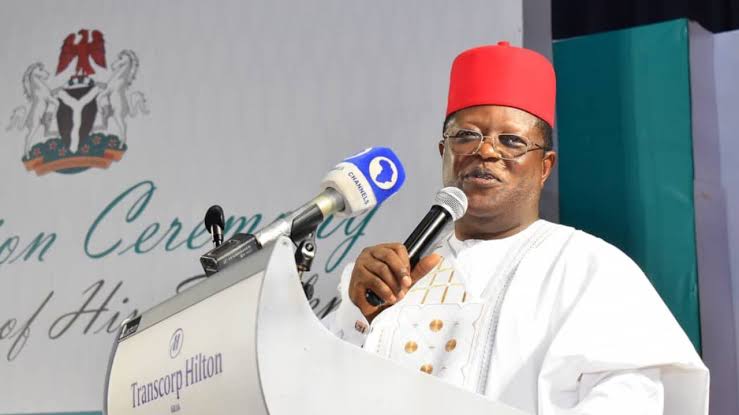
The Federal Government has directed the contractor handling the Eleme section of the East-West Road to expedite drainage work to meet the April deadline for completion.
The Minister of Works, David Umahi, issued the directive during an inspection of the ongoing 15km road upgrade from Eleme Junction to Onne in Eleme Local Government Area of Rivers State.
While commending Reynolds Construction Company Nigeria Limited for the quality of work done, Umahi insisted that the drainage must be prioritised to ensure timely completion.
“RCC has done very well. The work completed in the past two months is more than what was done since the project started. However, the project slowed down significantly when the site manager went on leave. I’m happy to see him back and satisfied with the quality of work RCC is delivering,” Umahi stated.
He emphasised the need to test existing road shoulders before excavation, warning against unnecessary digging for financial gains.
“The existing shoulder has to be tested throughout. I don’t want them digging up areas filled with sharp sand and stone base just to increase costs. If they don’t test it and request approval for any section they dig, they won’t get paid,” he warned.
Umahi also observed that drainage construction had either stopped or slowed significantly, urging the contractor to redesign and precast drainage systems for quicker installation, even during the rainy season.
“I’m happy with the project’s progress, and I believe they will complete the carriageway by the end of April. However, if drainage work is not completed, the project remains unfinished. They must accelerate drainage work to ensure we clear this carriageway by April,” he stated.
The minister further directed that any section of the road that has remained untouched for 21 days after concrete casting should be opened to commuters to ease traffic congestion.
“Anywhere that has stayed 21 days since concrete was cast should be opened to road users, starting today. This concrete technology will ensure the road lasts between 50 and 100 years without maintenance or reconstruction. It is a signature project of President Bola Tinubu,” he added.
Umahi also inspected the rehabilitation of the Enugu-Port Harcourt dual carriageway, Section IV (Aba–Port Harcourt), which is being handled by the Chinese Construction Engineering Company.
News
Reasons behind extreme heat conditions in FCT, Niger, Kogi – NiMet
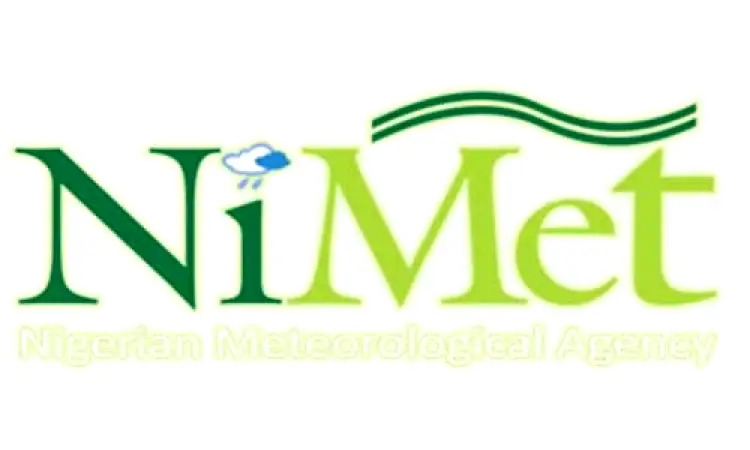
The Nigerian Meteorological Agency (NiMet) has given reasons for the high temperatures residents of the Federal Capital Territory (FCT), Niger, Kogi and few other states are currently experiencing.
The current maximum temperature in the listed states is 40°C and the minimum is 23°C.
The Seasonal Climate Prediction (SCP) released last month by the agency shows that most of the northern and central states would record day-time temperatures ranging between 37°C and 40°C, while parts of Kano, Kaduna, Bauchi, and Plateau states in the North as well as Oyo, Osun, Ogun, Ekiti, Edo, Enugu, Anambra, Ebonyi, Imo, Abia, part of Cross River and Delta states in the South are expected to record temperatures ranging between 34°C and 37°C this month.
The agency attributed the high temperatures to climate change and advised Nigerians to embrace a lifestyle switch.
Residents of the states experiencing high temperatures are advised to avoid exposure to direct sunlight between noon and 3 p.m.
There are also indications that this year may be hotter than last year, which was described as the hottest year.
NiMet’s Director of Weather Services, Prof. Vincent Weli, announced this while speaking on phone with The Nation yesterday. He said: “Everything is embedded in the climate change theory. Every experience we are having now is a result of climate change. The hotness, in general, is because of climate change.
“Abuja, Lokoja, and Minna are located within the same ecological zone and these towns share the same weather pattern. Whatever happens to Lokoja will affect Minna and Abuja because they are in the same route of the flow of wind and also lie within the same climatic zone. Also, these towns have the same vegetation pattern.
“So, since they are within the same climatic belt, everything that affects Minna and the FCT will affect Lokoja accordingly. The heat is affecting everywhere, not just these towns mentioned. We said last year was the hottest in the history of the earth but this year already is trying to beat it to become the hottest.
“So, as the year increases, it’s obvious that we are going to have higher temperatures. I don’t know where we are headed with this trend, but something needs to be done to reverse the trend.”
To make the best of the situation, Prof. Weli said: “What can reverse the trend is for us to encourage every activity of man that will reduce the emission of carbon dioxide into the atmosphere, such as the use of electric cars, solar power and planting of trees.
“These will be other sources of energy other than the use of diesel and petrol and other hydrocarbon compounds that we use as sources of power. Also, we should plant more trees to reduce carbon dioxide in the atmosphere. The more we plant trees, the more we reduce carbon dioxide in the atmosphere and the more we increase the oxygen.”
The NiMet director urged residents of the affected states with high temperatures to take necessary action to overcome the hot weather.
He said: “In order not to experience what we call heat stroke, people should drink more water often, keep themselves off the direct impact of sunlight between 12 p.m (noon) and 3 p.m. If people do not expose their bodies to the direct impact of sunlight, it will reduce water loss from the system.
“So, people should drink more water than necessary. Otherwise, their systems will be dehydrated, and that will cause secondary health issues.”
News
JAMB begins sales of 2025 direct entry forms March 12
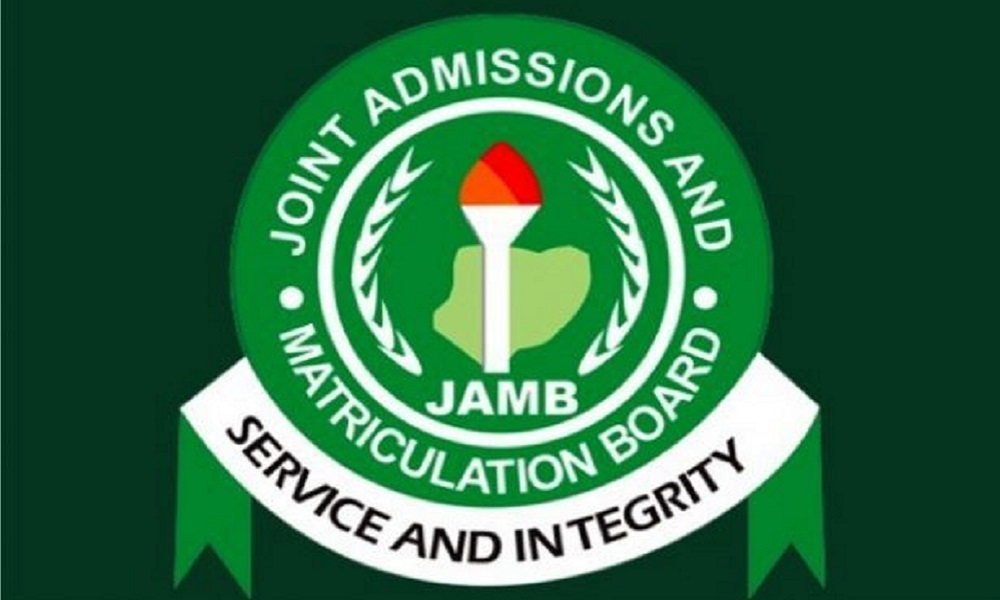
Registration for this year’s Direct Entry (DE) form will begin tomorrow, the Joint Admissions and Matriculation Board (JAMB) has said.
The board said the registration process is crucial for those who possess degrees, diplomas, or A-Level certificates and wish to advance their education at their preferred universities.
JAMB’s Public Communications Advisor, Dr. Fabian Benjamin, announced this in a statement yesterday in Abuja.
The statement said the announcement for the commencement of the DE sales followed the successful conclusion of the Unified Tertiary Matriculation Examination (UTME) application sales, which ended on Saturday, March 8.
“During this period, JAMB recorded a total of 2,030,627 registrations for the 2025 UTME, along with 200,115 for the Mock-UTME and 630 applications for the trial mock,” the statement said.
It added: “JAMB has emphasised the importance of adhering to all entry requirements, warning that serious penalties will be imposed on applications containing false declarations. A special committee will verify all submitted Advanced A-Level Qualifications, and any fraudulent results will lead to prosecution. Additionally, institutions are encouraged to directly verify certificates before considering admissions.
“Registration can only be done at JAMB Professional Registration Centres (PRC).”
-
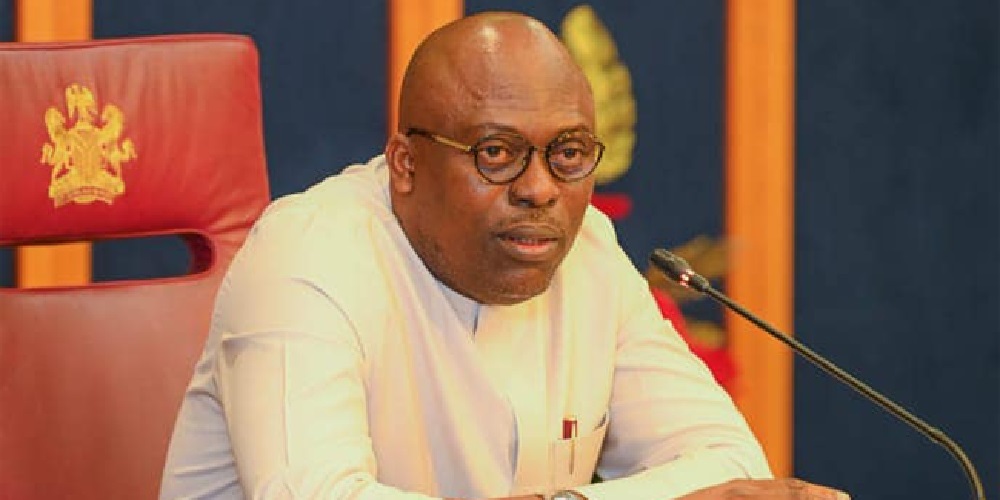
 News19 hours ago
News19 hours agoBREAKING! Fubara to honourably resign or face disgraceful impeachment process
-
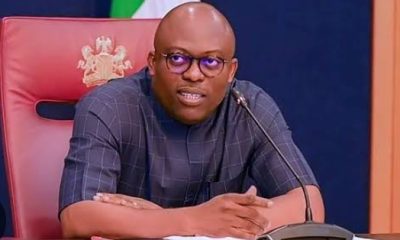
 News19 hours ago
News19 hours agoBREAKING: Resign Within 48 Hours Or Face Impeachment, Rivers APC Tells Fubara
-

 News13 hours ago
News13 hours agoPastor Adeboye rejects living beyond a century
-
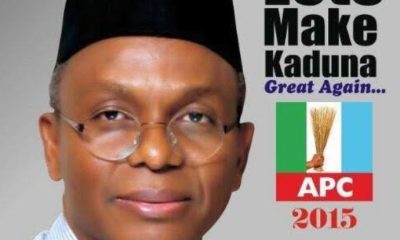
 News20 hours ago
News20 hours agoFinally , El-Rufai dumps APC, joins new political party
-
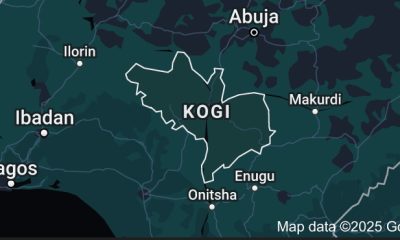
 News20 hours ago
News20 hours agoSAD: Ex-Deputy Gov of Kogi state is dead
-

 News18 hours ago
News18 hours agoBREAKING! Rivers Assembly issues warrant of arrest on RSIEC chairman
-
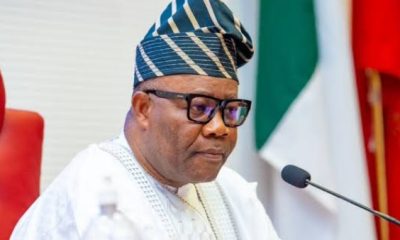
 News11 hours ago
News11 hours agoSuspension: Akpabio queries Court’s Jurisdiction To Hear Natasha’s Suit
-
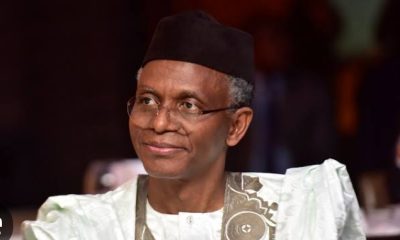
 News11 hours ago
News11 hours agoWhy I abandoned APC -El-Rufai






